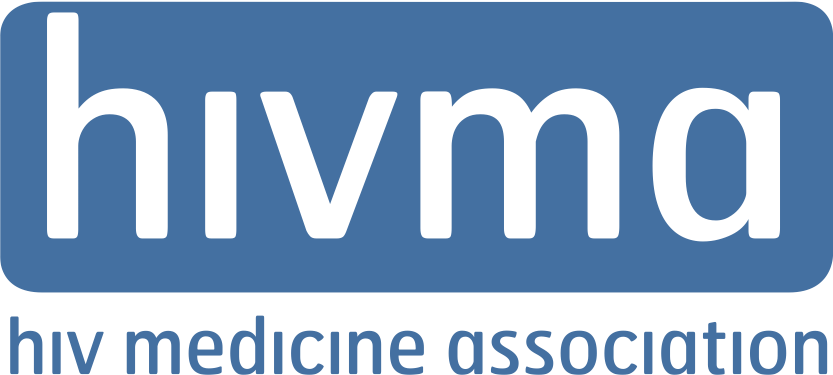Reports of Censorship in Federal Budget Documents
Statement of the Infectious Diseases Society of America, HIV Medicine Association and the Pediatric Infectious Diseases Society:
We are deeply concerned about reports that budget documents submitted to Congress from the Centers for Disease Control and Prevention (CDC) may be censored for certain terms that include “science-“ and “evidence-based,” “transgender” “diversity” “entitlement” “vulnerable” and “fetus.” We find this unacceptable and disturbing. We strongly urge elected officials to prohibit any form of censorship that interferes with accurate communications by CDC, other Department of Health and Human Services agencies and other federal agencies.
As physicians and scientists, our work in patient care and research is based on findings gathered through quality scientific methods that seek to minimize bias. By starting on an objective and a neutral foundation, trust may be established so that patients and therefore the nation’s public health may be protected and advanced.
Censorship driven by political means vested in ideology rather than science threatens to disrupt a prime goal of government: protecting public safety. No different than protecting our shores from military invasion or policing internal strife in our communities, loss of clear and impartial research and recommendations compromises the CDC and the work of other federal agencies. For example, CDC will be deprived to fully conduct safeguarding work essential against new and emerging infections as well as understanding health concerns in all sectors of our society. The impact of censoring science and scientists at the federal level will be serious and far-reaching, not only for the country’s health, but also trust in government itself.
Suppression of language in budget documents suggests further intent--thwarting a federal agency from requesting funding for public health initiatives based on sound science, yet controversial in the political arena. Transgender Americans, for example, have multiple health challenges that impact not only their personal health but also have potential direct impact on a wider community, ranging from sexually-transmitted infections to higher risk for mental health issues and cancer that also increase costs to the health system. While there is, unfortunately, ideological controversy surrounding the rights of transgender persons, facts regarding their health should not be expunged.
Likewise, “fetus” is a scientific word necessary to describe efforts to investigate the health of pregnant women and infants, whether to prevent birth defects caused by the emerging Zika virus infection or to curtail the opioid epidemic’s devastating impact on infant and child health and mortality. While politicians may debate funding for initiatives based on ideology, no elected official should tolerate censoring health science communications, including science-based budget requests from its federal agencies.
We also are concerned that restricting budget documents may lead to additional problems driven by potential censorship. When ideology, fear, and ignorance dominate discourse in the public health arena, consequences are deadly. More than three decades ago when HIV first appeared in the U.S., the federal government’s unwillingness to acknowledge the epidemic and to allocate resources allowed the HIV epidemic to expand further and faster. These early, federal inactions were not based on science but rather grounded in ideology and politics. Timely intervention could have saved many thousands of lives.
If as reported, the current administration recommended the substitution of “science in consideration with community norms and standards” to replace “evidence-based” and “science-based” this is dangerous and misleading. This substitution, perhaps unintentionally, will stifle innovation and lead to dangerous consequences. If community sentiment results in higher rates of unimmunized schoolchildren, there will be more outbreaks such as the recent measles epidemics in California and Ohio all attributed to children not receiving the vaccine. Conversely, our national responses to Ebola virus and more recently Zika virus demonstrate how outbreaks can be quickly and effectively controlled using evidence-based techniques. While community concerns should be acknowledged, they should not override compelling scientific findings.
The CDC is our premier public health agency and serves as a leader worldwide in tackling serious challenges including antibiotic resistance, the opioid epidemic, HIV, sexually transmitted infections, tuberculosis, viral hepatitis, and emerging threats such as Ebola and Zika. The CDC must be fully engaged to prepare for the next infectious threat to our country. The agency’s critical work saves lives from newborns to seniors because it is, and must be, informed by worthy science. If the agency and its scientists and public health officials and those from other federal agencies are banned from, or encouraged to avoid, using scientifically accurate terms, their work will be greatly compromised, and the public will be gravely disserved.
About IDSA
The Infectious Diseases Society of America (IDSA) represents physicians, scientists and other health care professionals who specialize in infectious diseases. IDSA’s purpose is to improve the health of individuals, communities, and society by promoting excellence in patient care, education, research, public health, and prevention relating to infectious diseases.
About HIVMA
HIVMA is an organization of nearly 5,000 clinicians and researchers whose professional focus is HIV medicine. HIVMA’s mission is to promote quality in HIV care by advocating policies and supporting programs that ensure a comprehensive and humane response to the AIDS pandemic informed by science and social justice. Nested within the Infectious Diseases Society of America, HIVMA's work includes creating clinical and educational tools and resources; supporting clinical training and research opportunities to build HIV workforce capacity; and promoting policies and programs to improve access to HIV prevention and care.
About PIDS
PIDS is the world's largest organization of professionals dedicated to the treatment, control and eradication of infectious diseases affecting children. Membership is comprised of physicians, doctoral- level scientists and others who have trained or are in training in infectious diseases or its related disciplines, and who are identified with the discipline of pediatric infectious diseases or related disciplines through clinical practice, research, teaching and/or administration activities.

